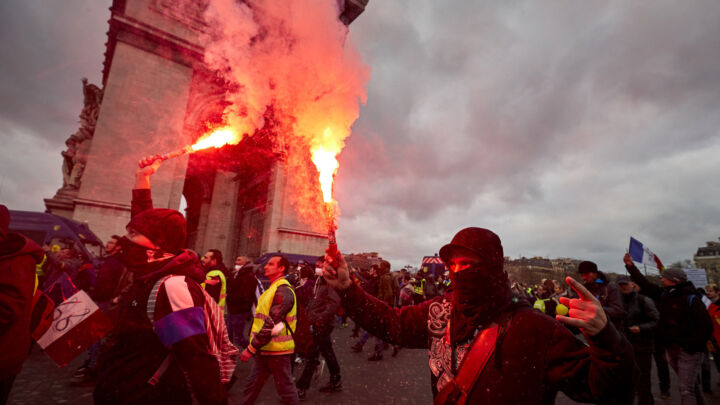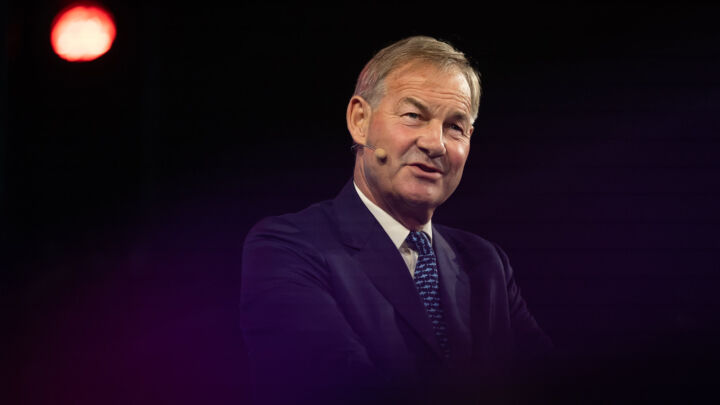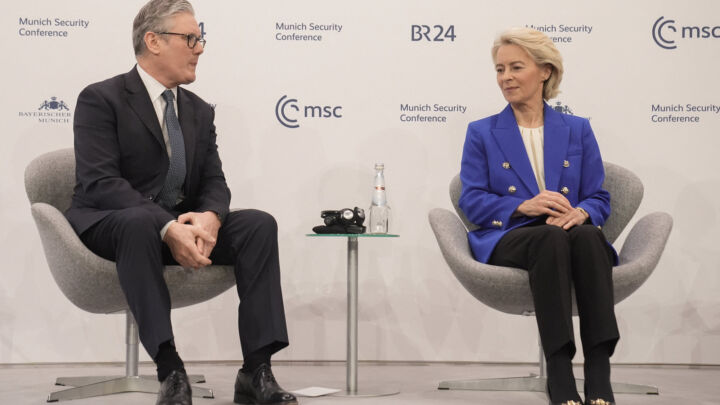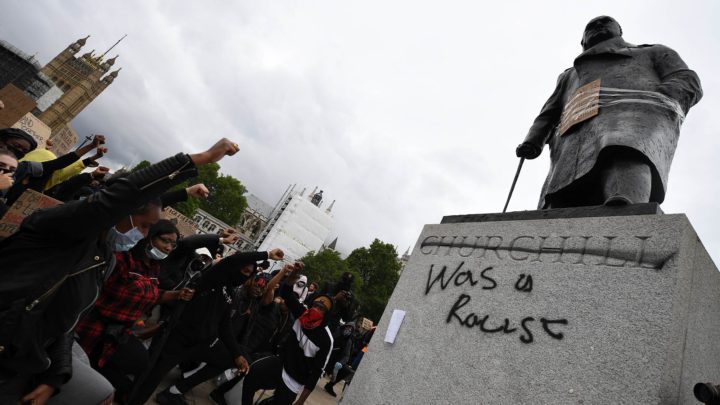If Scotland goes, it should take Northern Ireland with it
Scottish independence would spell the end of British identity in Ulster.

Want unlimited, ad-free access? Become a spiked supporter.
One of the great assumptions of the Scottish independence debate is that if the country were to vote ‘Yes’ to independence this September, it would leave behind a rump United Kingdom of England, Wales and Northern Ireland. This notion is illustrated best by that graphic seen on BBC News, in which the St Andrew’s flag gradually divests itself from the Union flag, to leave the St George’s Cross and the Cross of St Patrick against a now-blanched background.
But could such a rump UK function? I doubt it. One between England and Wales could, possibly. Despite the wishes of Welsh (and indeed English) nationalists, the two countries are physically and economically linked – just have a look at the commercial relationship between Bristol and Cardiff or Liverpool and north Wales. But Northern Ireland would resemble a very odd third partner in this hypothetical, slimmed-down UK, cut off by the sea and by culture (there are no peace walls in England and only Southport has annual Orange Order parades).
So, I have a better suggestion: if Scotland declares independence, shouldn’t Northern Ireland go with it? No, let me rephrase that: if Scotland becomes independent, it has a moral obligation to take Northern Ireland with it. Ulster is, after all, far more of a Scottish colony than an English one, demographically speaking. From the reign of King James VI of Scotland (who also became James I of England in 1603), Ulster was disproportionately colonised by Scots (many of whom later left for America to become ‘Scotch-Irish’), which explains why Presbyterianism was always a more popular denomination in Ulster than the Church of Ireland. The Scottish legacy is also reflected in efforts in recent decades among Protestants to cement an ‘Ulster-Scots’ culture and language. While you will see the Scottish saltire at Orange Order marches, you won’t see an empty-handed Cross of St George.
The two lands are united in their love of and hatred of Glasgow’s two football teams and by simmering sectarianism. The Scottish National Party (SNP) was very keen to jump on the Braveheart bandwagon. Why not go even further back in time? Parts of Ulster and Scotland were once united in the sixth and seventh century in the kingdom of Dalriada. The revival of this ancient kingdom, should Scotland vote ‘Yes’, would make much more sense than Northern Ireland’s continued bondage to England. After all, most English people are notoriously ignorant about Ulster. During the Troubles, the English regarded the province with a mixture of irritation and indifference, which is why the IRA in the 1970s knew that England would only take notice if there were bombs on the mainland. ‘They’re both as bad as each other’ and ‘fancy fighting about religion’ were the two common reactions. To the English, the Northern Irish are a foreign people, which is why they found the grating, mangled accents of John Cole and Ian Paisley so amusing – so otherish, so strange.
There has been little love in the opposite direction. To Irish republicans, England was always the occupier, and most Ulster Catholics had good reason to come to dislike the English after 1969. It was with English accents that they heard their houses raided, their husbands and brothers interned and shot. Meanwhile, Ulster Protestants have always – with fair reason – suspected that London wanted to rid itself of the Six Counties, hence the actions of 1974 and 1985 (even 1912), when ‘loyalists’ rebelled against a perceived perfidious London government.
So, in the eventuality of independence, will the SNP carry out its historic post-colonial duty and take custody of its own colony, its cultural cousin? Very unlikely. I doubt it’s even on the party’s radar. The SNP is monomaniacal in its obsession with independence. This explains its determination to act unilaterally – without giving a say to anyone in the UK living outside of Scotland, including Scottish people. It explains its desperation: extending the franchise to schoolchildren in the hope of swinging the vote. It explains its lack of foresight: it hasn’t thought out qualification for EU membership and eligibility to use sterling properly – let alone the future of the Shetlands, the Falklands and Gibraltar. Like all nationalist movements, it appeals to primal tribalism. So naturally, the SNP hasn‘t seriously considered the consequences for Ulster. And the result of this could be catastrophic.
Northern Ireland is the only part of the United Kingdom in which British is used as a term of ethnicity – by most Protestants at least. Contrarily, on the mainland, ‘British’ is used by ethnic minorities and an ever-dwindling number of whites as a civic term that stands above their ethnicity of ‘English’, ‘Welsh’, ‘Indian’ and so on. With the break-up of Britain, what will be the fate for those who identify as British? What will happen with the disappearance of that core symbol of Ulster loyalism – the Union flag? You’d have to be a fantasist of the highest order to assume Ulster Protestants would decide overnight to become dyed-green Irishmen owing to a lack of alternative. So was 1688 and everything that followed merely a hollow sacrifice, a waste of blood and tears? ‘Yes Surrender’? Loyalist culture feels as besieged enough as it is, which is why parades remain such an important issue.
You may remember that Ali G interview when he asked the DUP’s Sammy Wilson if he was Irish, to which Wilson replied no, and that he was British. ‘So is you here on holiday?’ retorted Sacha Baron Cohen’s idiot-savant character. It cuts straight to the heart of something academics have been talking about for decades: the crisis of identity among Ulster’s Protestants. Ever since the Ulster Worker’s Council Strike of 1974-75 against the British government, efforts have abounded to create a distinctive ‘Ulster’ culture stripped of all references to Britain, and it has never caught on. The Troubles that pitted ‘Irish’ against ‘British’ – and the peace process that followed, with its multicultural ethos of entrenching identities – further inhibited the emergence of an ‘Ulsterish’ people.
As Britain dissolves, who knows what will happen to the last ethnic British. Whatever the outcome, it won’t be pretty. There will be chaos.
Patrick West is a columnist for spiked.
You’ve hit your monthly free article limit.
Support spiked and get unlimited access.
Support spiked and get unlimited access
spiked is funded by readers like you. Only 0.1% of regular readers currently support us. If just 1% did, we could grow our team and step up the fight for free speech and democracy.
Become a spiked supporter and enjoy unlimited, ad-free access, bonus content and exclusive events – while helping to keep independent journalism alive.
Monthly support makes the biggest difference. Thank you.








Comments
Want to join the conversation?
Only spiked supporters and patrons, who donate regularly to us, can comment on our articles.